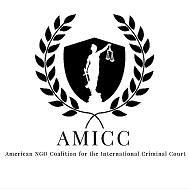 |
| UN Photo/Rick Bajornas |
“Alternative Fact”: Americans
do not want to participate with the Court.
Fact:
The majority of Americans support US participation the Court. According to the
2016 Chicago Council on Global Affairs survey, 72% of Americans think the US
should to participate in “the agreement on the International Criminal Court
that can try individuals for war crimes, genocide, or crimes against humanity
if their own country won’t try them.” Furthermore, the Court receives
bipartisan public support—79% of Democrats, 67% of Republicans and 65% of Core
Trump Supporters agree that the US ought to participate in the Rome Statute. In
a repeated phenomenon, Americans have consistently polled in favor of American
participation in the Court, and support for the Court has seen an upward trend
in the US.
“Alternative Fact”: The
Court is an unprofessional body made up of unqualified individuals.
Fact: The
Rome Statute places strong criteria for judges, there are no recent examples of
unprofessional behavior by any personnel, and all of the current judges are
highly qualified. The only exception was Judge Fumiko Saiga, who was not a
lawyer and had limited knowledge of international law, but Judge Saiga is no
longer on the court, having died shortly after her appointment. The
international community learned from the appointment and modified the process
of nomination as a result. Now, an independent committee of experts review all
nominations for the judiciary. As a result, nominating countries present only
candidates that the panel will decide are qualified. Under current practice, it
is unlikely for states to nominate an unqualified person.
“Alternative Fact”: Only
the most violent atrocities should be prosecuted at the ICC. The conviction and
prosecution of Ahmad Al Faqi Al Mahdi for his intentional destruction of
religious and historical buildings undermined the Court.
Fact: The
ICC did not convict Al Mahdi for a bloody atrocity, but for the war crime of
the destruction of internationally recognized sites of cultural and religious
significance in Timbuktu. These sites were a UNESCO world heritage location.
The conviction was appropriate given that not all war crimes include physical
attacks on human beings . The Rome Statute makes the intentional destruction of
religious and historic buildings without a military target a war crime under
the ICC’s jurisdiction. Therefore, it was completely within the Office of the
Prosecutor’s mandate to investigate and subsequently prosecute Al Mahdi,
particularly since the Office of the Prosecutor’s evidence against Al Mahdi was
sufficient for Al Mahdi to plead guilty. If the Court had ignored the
well-established Timbuktu case, it would have violated its mandate and weakened
its legitimacy. Furthermore, it did not undermine support for the ICC. There
was widespread international support for the case and how the Court dealt with
it. Many advocates for the protection of cultural heritage applauded the case.
Lastly, the OTP’s decision to prosecute this case does not rule out further
investigations into violent crimes under the Court's jurisdiction in Mali and
subsequent arrest warrants for individuals responsible.
“Alternative Fact”: The
Court is standing on shaky ground with little support and a collective
withdrawal from African states on the horizon.
Fact: The
ICC enjoys widespread support from over 120 state parties, and a threat of mass
ICC withdrawal is not as potent as many believe. The majority of African
states, as well as other state parties, voiced support for the Court at the
last ASP session. Furthermore, while panic emerged after Gambia, South Africa
and Burundi announced their intention to withdraw from the ICC, Gambia has
since rescinded its withdrawal and South Africa’s High Court ruled the
withdrawal submitted by the executive as “unconstitutional.” In response, to
African states’ complaints, the ASP took their concerns in account by proposing
a venue which these could be voiced. At the same time, the ASP insisted on
maintaining the commitment to end impunity.
“Alternative Fact”: The
Court’s inability to capture individuals that it issues arrest warrants for,
such as Omar al Bashir, the current
Sudanese President, exemplifies the Court’s failure.
Fact: As
an international organization, the Court itself cannot enforce its warrants and
orders. Instead, its state parties are responsible for arresting these suspects
and transferring them to The Hague. Therefore, it is the states, which refuse
to arrest those wanted by the ICC, that are at fault, and their failure should
not be a reflection on the ICC. However, international condemnation and public
opinion and the rule of law within a state can deter such failure and provoke
accountability for those rejecting their duties under the Rome Statute. A
perfect example of such action is the recent charges brought by the South African
Democratic Alliance against officials responsible for the failure to arrest
Bashir when he was in South Africa, after international and domestic criticism.
As other states and officials, see the results of failure to uphold Rome
Statute duties they will be less inclined to follow suit. Moreover, the Court’s
docket shows that it has been able to obtain custody of a significant number of
persons under its arrest warrants.
Written by Taylor Ackerman



